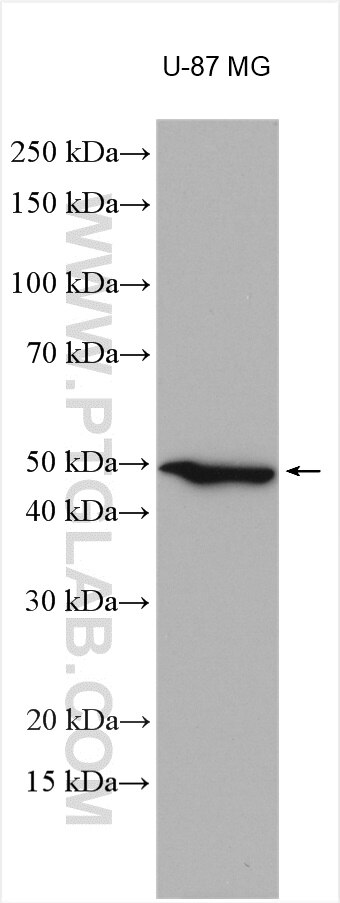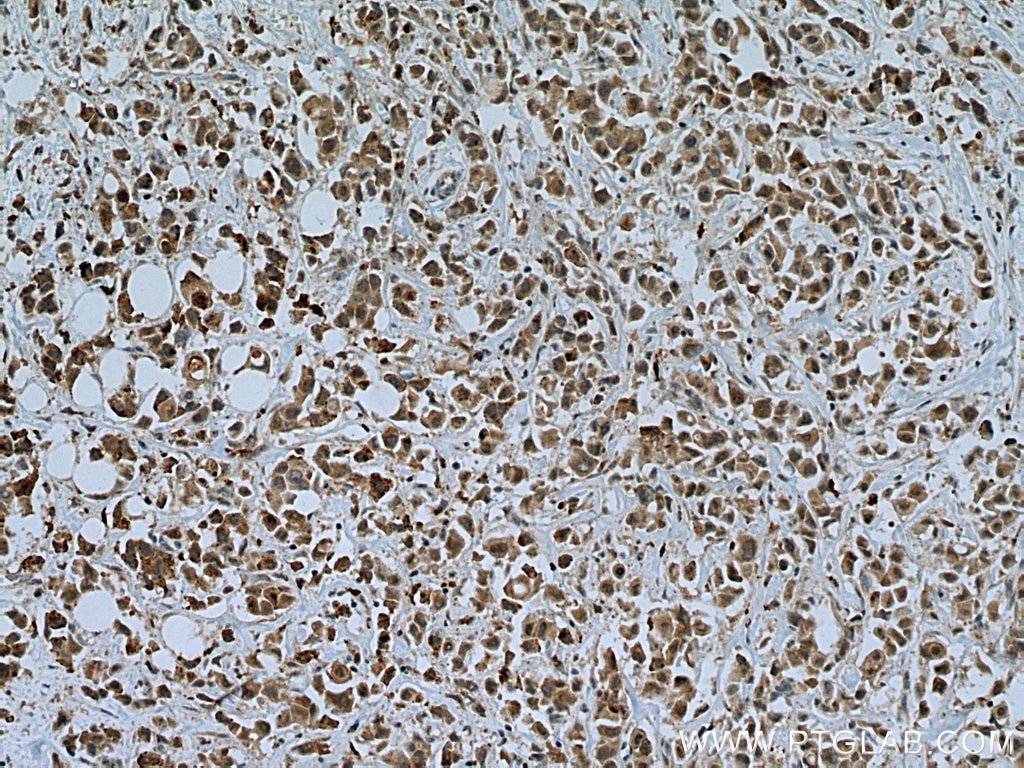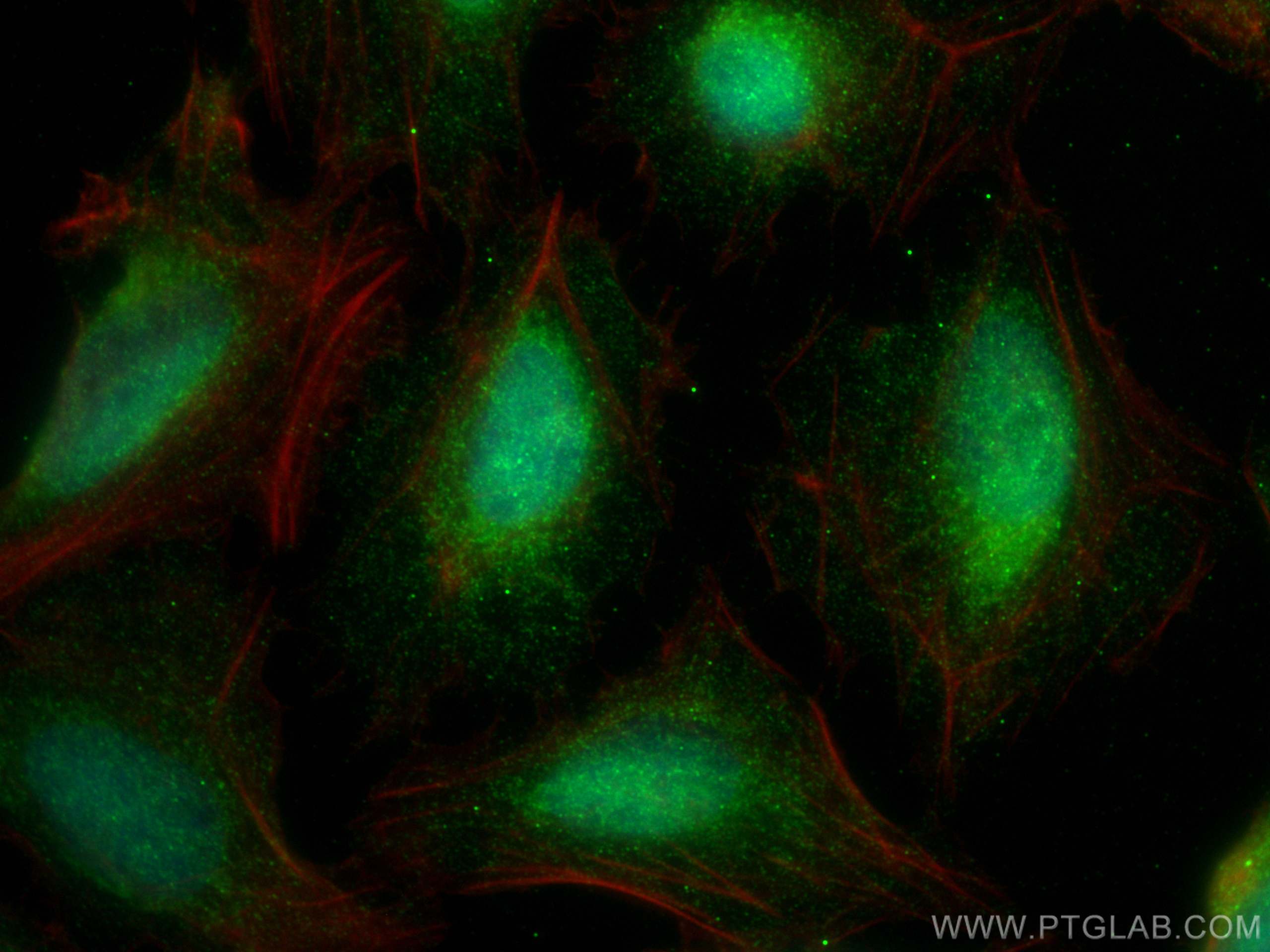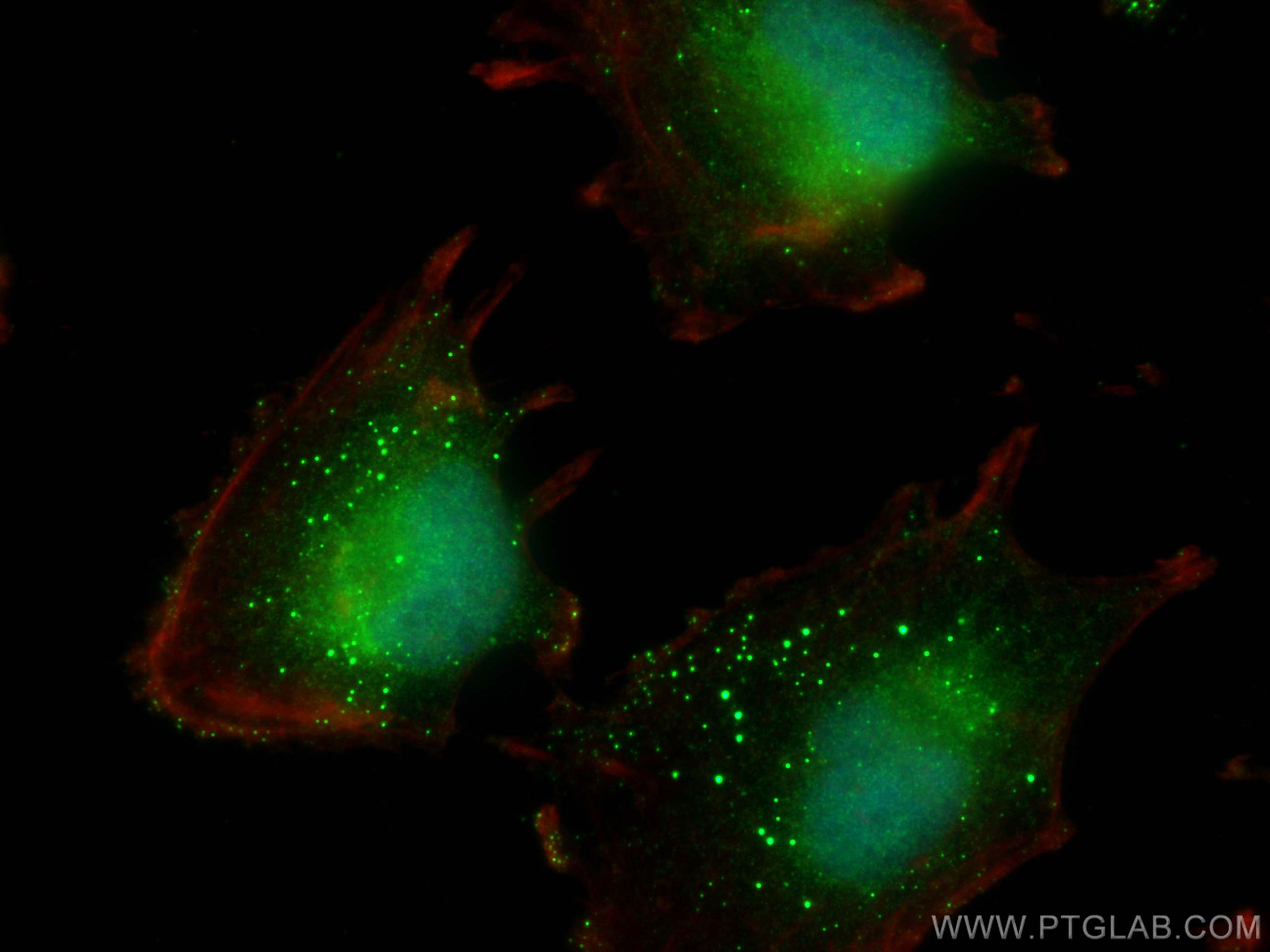Tested Applications
| Positive WB detected in | U-87 MG cells |
| Positive IHC detected in | human breast cancer tissue Note: suggested antigen retrieval with TE buffer pH 9.0; (*) Alternatively, antigen retrieval may be performed with citrate buffer pH 6.0 |
| Positive IF/ICC detected in | U2OS cells, U-251 cells |
Recommended dilution
| Application | Dilution |
|---|---|
| Western Blot (WB) | WB : 1:500-1:2000 |
| Immunohistochemistry (IHC) | IHC : 1:50-1:500 |
| Immunofluorescence (IF)/ICC | IF/ICC : 1:200-1:800 |
| It is recommended that this reagent should be titrated in each testing system to obtain optimal results. | |
| Sample-dependent, Check data in validation data gallery. | |
Product Information
20430-1-AP targets TMEM39A in WB, IHC, IF/ICC, ELISA applications and shows reactivity with human samples.
| Tested Reactivity | human |
| Host / Isotype | Rabbit / IgG |
| Class | Polyclonal |
| Type | Antibody |
| Immunogen |
CatNo: Ag14263 Product name: Recombinant human TMEM39A protein Source: e coli.-derived, PGEX-4T Tag: GST Domain: 191-297 aa of BC021277 Sequence: YPFGVYVPLCCFHQDSRAHLLLTDYNYVVQHEAVEESASTVGGLAKSKDFLSLLLESLKEQFNNATPIPTHSCPLSPDLIRNEVECLKADFNHRIKEVLFNSLFSAY Predict reactive species |
| Full Name | transmembrane protein 39A |
| Calculated Molecular Weight | 488 aa, 56 kDa |
| Observed Molecular Weight | 48-56 kDa |
| GenBank Accession Number | BC021277 |
| Gene Symbol | TMEM39A |
| Gene ID (NCBI) | 55254 |
| RRID | AB_3085605 |
| Conjugate | Unconjugated |
| Form | Liquid |
| Purification Method | Antigen affinity purification |
| UNIPROT ID | Q9NV64 |
| Storage Buffer | PBS with 0.02% sodium azide and 50% glycerol, pH 7.3. |
| Storage Conditions | Store at -20°C. Stable for one year after shipment. Aliquoting is unnecessary for -20oC storage. 20ul sizes contain 0.1% BSA. |
Background Information
Transmembrane protein 39A (TMEM39A, also called SUSR2) encoding an ER-localized transmembrane protein, is a susceptibility locus for multiple autoimmune diseases (PMID: 31806350).
Protocols
| Product Specific Protocols | |
|---|---|
| IHC protocol for TMEM39A antibody 20430-1-AP | Download protocol |
| WB protocol for TMEM39A antibody 20430-1-AP | Download protocol |
| IF protocol for TMEM39A antibody 20430-1-AP | Download protocol |
| Standard Protocols | |
|---|---|
| Click here to view our Standard Protocols |










